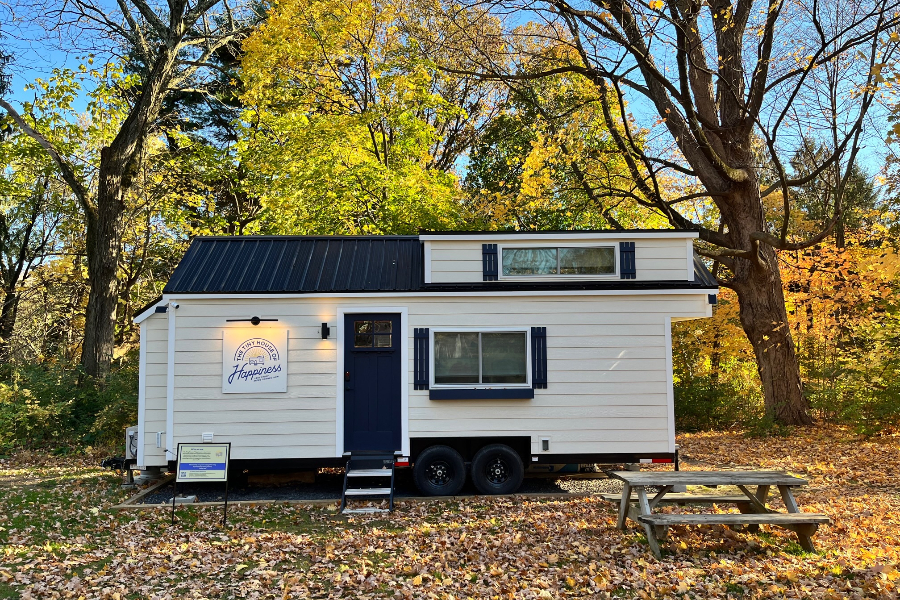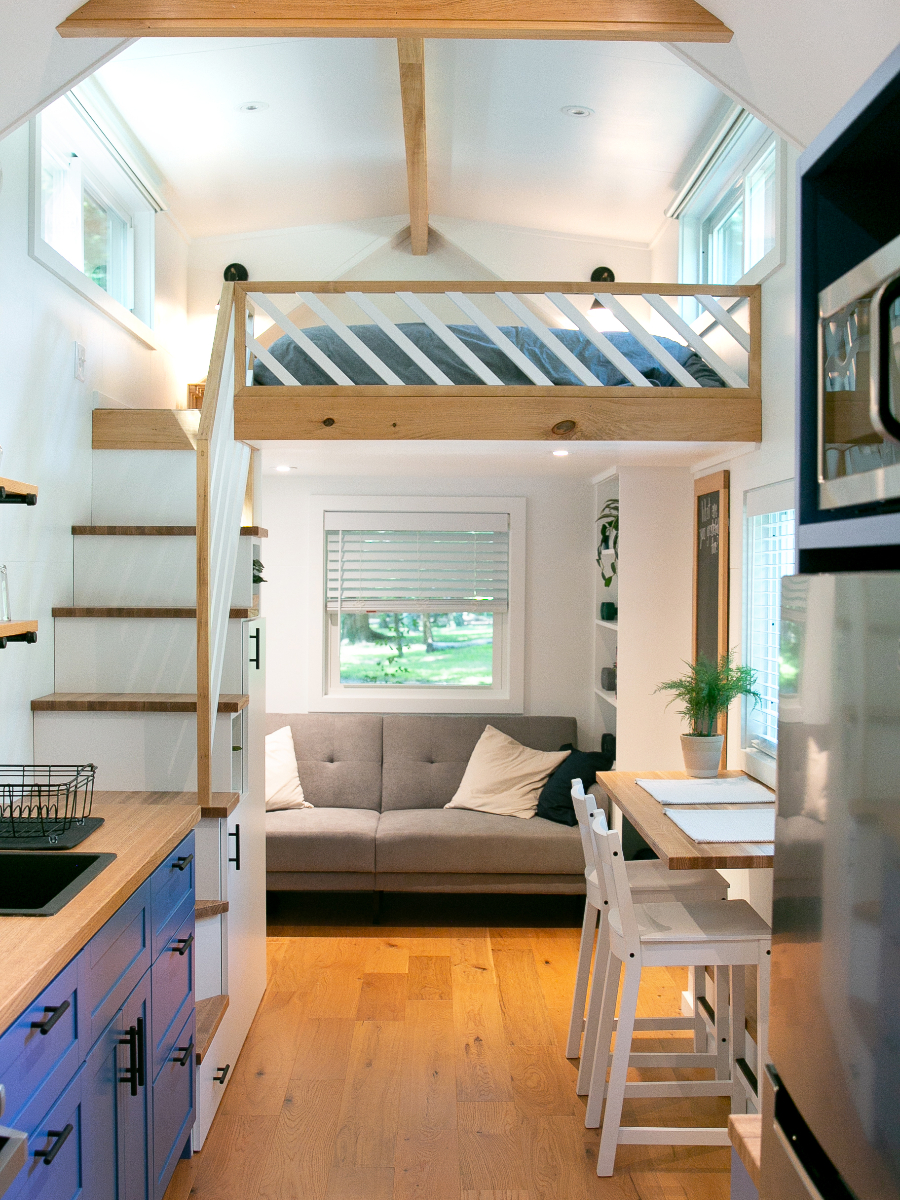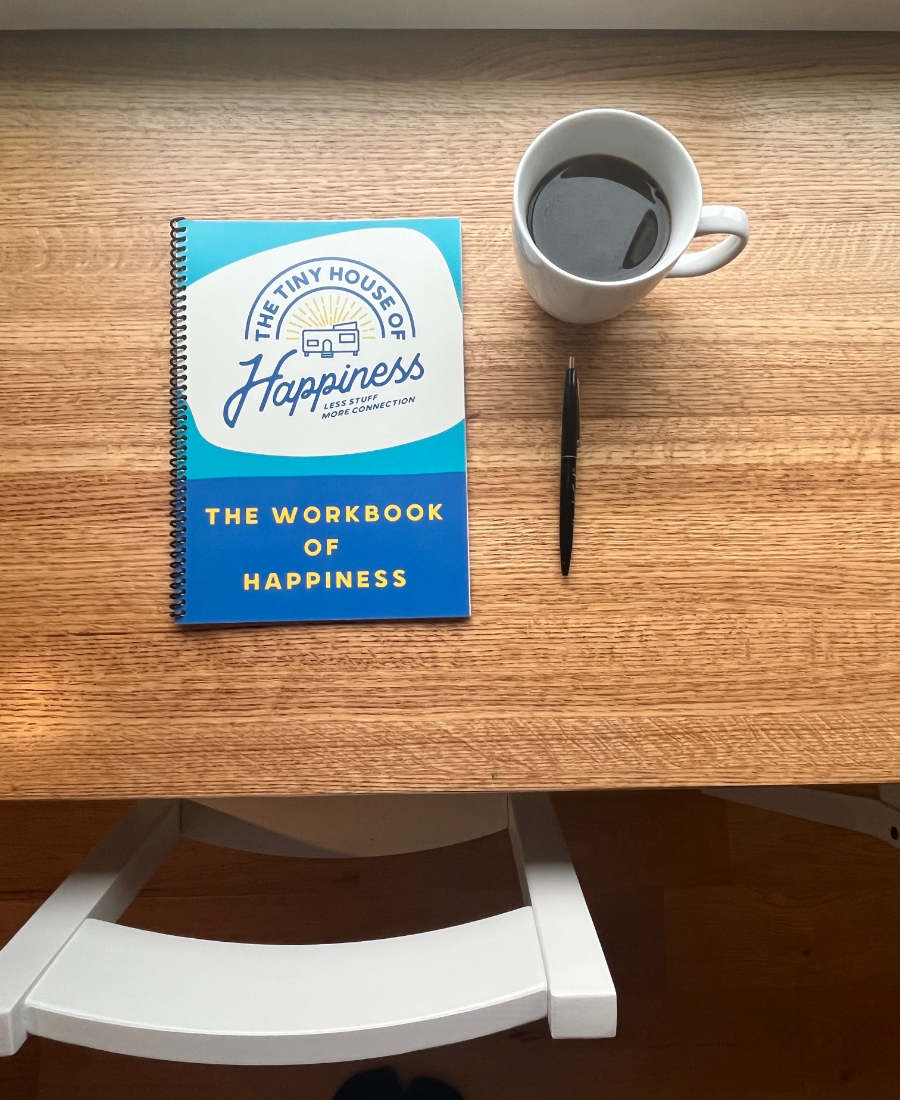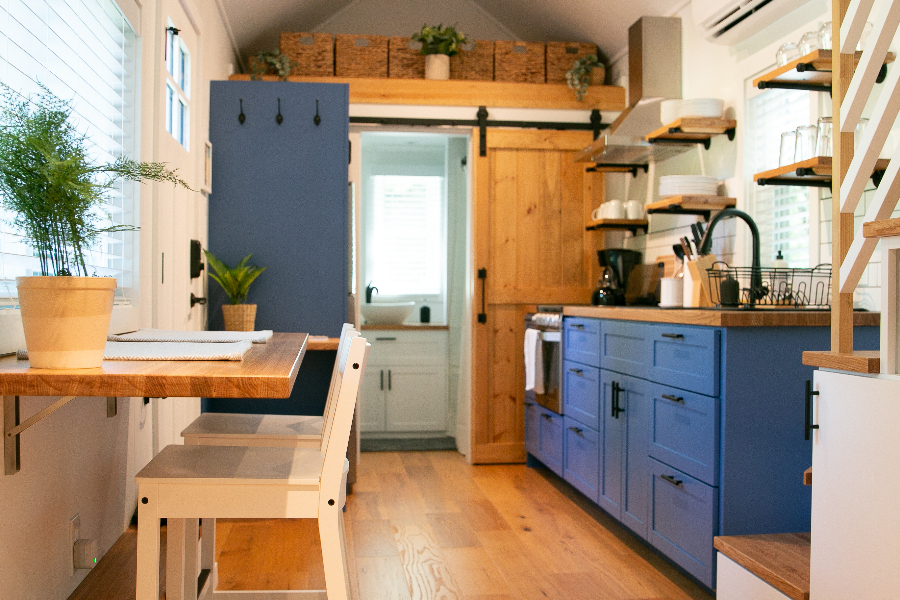How a Stay in a Philly Tiny Home Helped Me Appreciate Small Joys
The Tiny House of Happiness on Germantown's Farm at Awbury Arboretum changed the way I think about life.

The Tiny House of Happiness is located on the Farm at Awbury Arboretum in Germantown. / Photography courtesy of Danny Torrance
In late July, I found myself in front of a bright farmhouse-style tiny home as my new neighbor, a plump groundhog, emerged from its burrow to greet me. I was staying at the Tiny House of Happiness — a 283-square-foot mindfulness-focused property situated on Germantown’s Farm at Awbury Arboretum — to try founder Danny Torrance’s approach to minimalist living.
“Instead of thinking of happiness as an end goal or something to reach or achieve, it’s helpful to think of happiness as a way of being — as a by-product of a life marked by meaning, intentionality and connection,” writes Torrance in the Workbook of Happiness, his guidebook guests receive when they arrive. (Torrance, by the way, earned a master’s in applied positive psychology from Penn.)
Creature comforts include a well-equipped kitchen, a full bathroom, an alcove for lounging, and a lofted queen bed. The short-term rental doesn’t have wi-fi or a TV, as it’s meant to serve as a space where guests can unplug and detach from the material world. The overall goal? To help folks learn, practice and later adopt six habits for long-term joy: offering gratitude, practicing mindfulness, connecting with nature, engaging in physical activity, eliminating unnecessary material goods, and strengthening relationships.

The living area and loft
So I turned off my phone, nestled onto the comfortable mini couch, and dove into Torrance’s first reflection prompt: Three good things that happened today are …
While I came up with a few examples, I found myself falling into what the book describes as “negative bias,” or the mind’s tendency to register and dwell on the bad. I worried about whether I’d accomplished enough at work, and it was difficult to hush other gloomy thoughts (though when I finally did, I found myself in a happier — or at least better — mood).

Tiny House of Happiness guests get a copy of Torrance’s The Workbook of Happiness to complete during their stay.
The same thing happened the next morning during my 30-minute mindful meditation, which I chose to do in my lounge rather than outdoors because I wanted a quiet, controlled environment. I learned that this thought pattern, albeit frustrating, is common: Torrance notes in his workbook that people tend to ruminate on the past or look to the future and often forget to focus on where they are now — even though living in the current moment can bring a greater sense of feeling grounded.

The kitchen and dining area
This pattern continued during each of the remaining activities (such as walking around the arboretum and working out), so I had to really lean into my “now” and let all other distractions fall away in order to complete the tasks. I hadn’t realized how often I became preoccupied with things I ultimately had no control over. And while not using devices felt strange, limiting my exposure to constant media decreased my FOMO and anxiety. I was present and more at ease, both mentally and physically.
And maybe that’s what being happy — actually happy — really feels like.
From $350 for a minimum two-night stay.
Published as “Small Joys” in the October 2023 issue of Philadelphia magazine.


